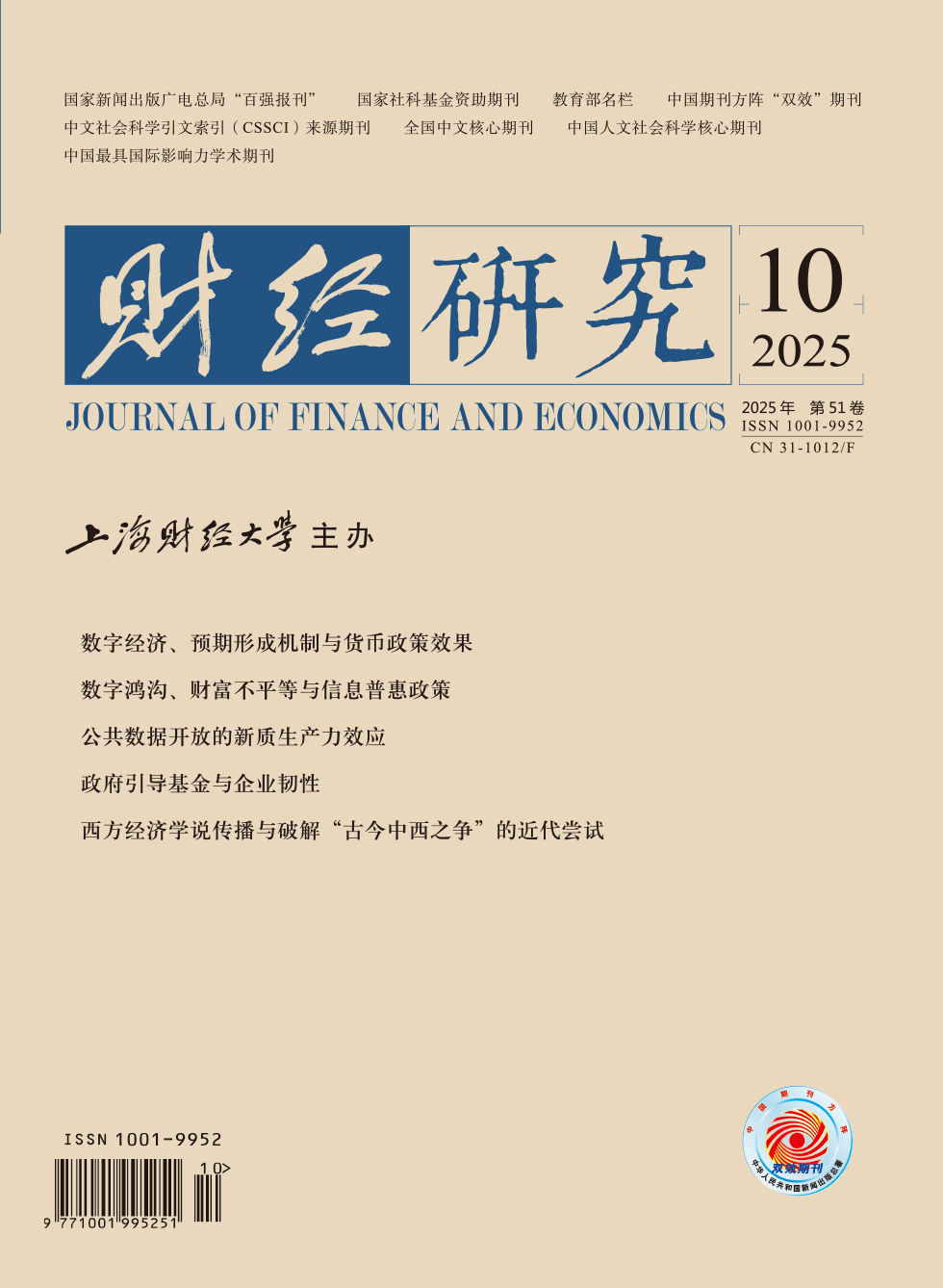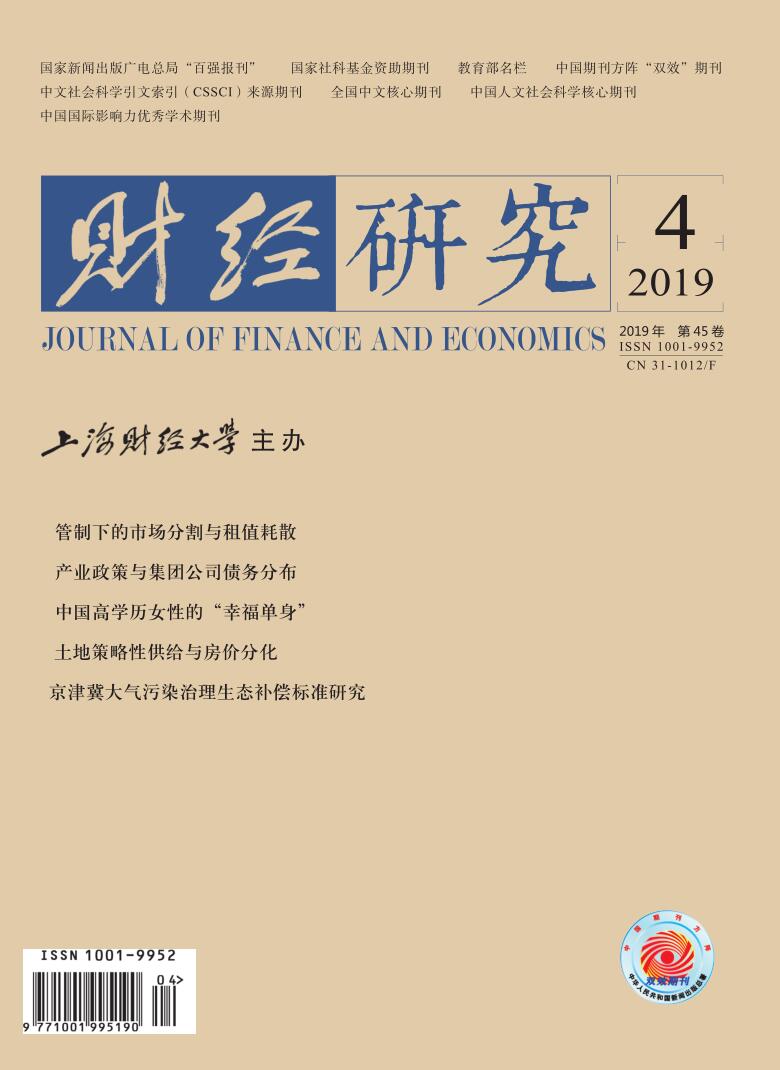With the development and opening up of China’s economy and the enlargement of universities, women have now surpassed men to become the main body of high education. At the same time, more and more highly educated women remain single at the age of marriage. In the traditional concept, single high-educated women are unpopular groups in the marriage market and are labeled as " dull” and " spinsters”. But the truth is, part of women are being single not due to their poor attractiveness, they look decent and extroverted. So why do these highly educated women have a considerable percentage to stay single? How does singleness affect their well-being? Which path is this impact based on? This paper aims to improve the literature on marriage and well-being, and raise concerns about the phenomenon of single women’s " happiness” and the overall interests of society. This paper puts forward four theoretical hypotheses. Based on the theoretical analysis and CFPS(2014)data, this paper empirically studies the relationship between the marriage and happiness of highly educated women. The main conclusions of the study are as follows: First, women with high academic qualifications have excellent appearance, high income, and great changes in their concept of marriage. Sometimes career choice is before marriage choice. Second, the single status of highly educated women has a significant effect on subjective well-being. The main paths of this role are: the mental independence guided by the individual’s more equal marriage attitude; the recognition of economic and social status brought by the enhancement of human capital; the reduced pressure of marriage brought by the increased social and family tolerance of female singles. Third, non-highly educated women’s single status reduces subjective well-being, which accords with previous research, and also explains the necessity of differentiation research. The conclusions bring inspirations both from the individual perspective and the social perspective. Most importantly, China is facing enormous fertility pressure, and the problem is rooted in the prevailing gender inequality in marriage and the unfair treatment of women in the labor market. The society should reasonably guide the equal views of family and gender, and the relevant policy design should also pay attention to the participation of the husband and protect the rights and interests of women. This paper expands the existing research in three aspects: First, it puts forward new arguments on women’s marriage, that is, mental and economic independence brings new choices for highly educated women. Second, it gives a complete study on the marriage and well-being of highly educated women from theory to practice, as well as the influencing mechanism. Third, the current universal fertility pressure is contrary to the " single happiness” of highly educated women. How to guide individual happiness while not violating the overall interests can provide a reference for the future policy design.
 / Journals / Journal of Finance and Economics
/ Journals / Journal of Finance and EconomicsJournal of Finance and Economics
LiuYuanchun, Editor-in-Chief
ZhengChunrong, Vice Executive Editor-in-Chief
YaoLan BaoXiaohua HuangJun, Vice Editor-in-Chief
“Happy Single” for Highly Educated Women in China: An Empirical Research on the Single State and Subjective Well-Being
Journal of Finance and Economics Vol. 45, Issue 04, pp. 42 - 53 (2019) DOI:10.16538/j.cnki.jfe.2019.04.004
Summary
References
Summary
[1] Chi L P. Does marriage make people happy: Empirical results and theoretical explanations[J]. Journal of Capital Normal University (Social Sciences Edition), 2014, (1): 136-144. (In Chinese)
[2] Lei X Y, Xu W J, Zhao Y H. Does marrying up make your life more satisfied? Marriage pattern and its long-term effects[J]. China Economic Quarterly, 2014, (1): 31-50. (In Chinese)
[3] Li L, Liu P C, Sun H. Male or female, who is happier[J]. Statistical Research, 2017, (7): 82-93. (In Chinese)
[4] Lee M K. Analysis of the phenomiennon of ‘gold miss’ delaydmarriage in Korea[J]. Youth Studies, 2012, (2): 83-96. (In Chinese)
[5] Li Y, Xu A Q. Study on mating pattern and gender preference: Explanation of western theories and local experiences[J]. Youth Studies, 2004, (10): 1-11. (In Chinese)
[6] Mu Z, Xie Y. Fertility effects on parrents’ subjective well-being[J]. Sociological Studies, 2014, (6): 124-147. (In Chinese)
[7] Qi Y Q, Niu J L. The evolution of assortative mating patterns in the process of China’s modernization[J]. Sociological Studies, 2012, (1): 106-129. (In Chinese)
[8] Wang X. An analysis of youth single phenomenon in the third bachelor trend[J]. China Youth Study, 2006, (12): 5-7. (In Chinese)
[9] Wu Y W, Liu Q. The impact of higher education expansion on the marriage market: single women? Single men? [J]. China Economic Quarterly, 2014, (1): 5-30. (In Chinese)
[10] Xu X Y, Chen L, Li Z Z. Literature review on recognition of gender equality and it’s influence factors[J]. Colletion of Women’s Studies, 2010, (3): 87-93. (In Chinese)
[11] Yuan Z, Li L. Marriage and happiness[J]. China Economic Studies, 2017, (1): 24-35. (In Chinese)
[12] Banerjee A, Duflo E, Ghatak M, et al. Marry for what? Caste and mate selection in modern India[J]. American Economic Journal: Microeconomics, 2013, 5(2): 33-72. DOI:10.1257/mic.5.2.33
[13] Blanchflower D G, Oswald A J. Well-Being over time in Britain and the USA[J]. Journal of Public Economics, 2004, 88(7-8): 1359-1386. DOI:10.1016/S0047-2727(02)00168-8
[14] Currie J, Moretti E. Mother’s education and the intergenerational transmission of human capital: Evidence from college openings[J]. The Quarterly Journal of Economics, 2003, 118(4): 1495-1532. DOI:10.1162/003355303322552856
[15] Lyubomirsky S. The how of happiness: A new approach to getting the life you want[M]. New York: Penguin Press, 2008.
[16] Macvarish J. What is ‘the problem’ of singleness?[J]. Sociological Research Online, 2006, 11(3): 1-8.
[17] Soulsby L K, Bennett K M. Marriage and psychological wellbeing: The role of social support[J]. Psychology, 2015, 6(11): 1349-1359. DOI:10.4236/psych.2015.611132
[18] Wooldridge J M. Econometric analysis of cross section and panel data[M]. 2nd ed. Cambridge, Mass.: MIT Press, 2010.
[19] Wu N, Wang Q Y. Wage penalty of overeducation: New micro-evidence from China[J]. China Economic Review, 2018, 50: 206-217. DOI:10.1016/j.chieco.2018.04.006
Cite this article
Zhao Wei, Liu Xuyang. “Happy Single” for Highly Educated Women in China: An Empirical Research on the Single State and Subjective Well-Being[J]. Journal of Finance and Economics, 2019, 45(4): 42-53.
Export Citations as:
For
ISSUE COVER
RELATED ARTICLES




 8862
8862  18785
18785

